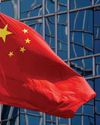
I believe that we’re heading for another liquidity crisis or financial crisis. That doesn’t mean it’ll happen tomorrow, but there are disturbing signs that it might not be too far off.
It doesn’t mean the world’s going to end. But investors who aren’t prepared could see large portions of their portfolios wiped out. It could take years to rebuild them, and many investors just don’t have the time to recoup those losses.But how do you prepare? You might want to start by looking at how “old money” preserves its wealth. Today I want to explore that.
On a cool evening in the fall of 2012, I joined a private dinner in Rome with a small group of the world’s wealthiest investors.We dined at Palazzo Colonna, a private palace that’s been owned by one family for 31 generations or 900 years. My dinner companions were mainly Europeans, some Asians and relatively few from the United States.Amid marble, gold, paintings and palatial architecture, I mused on the meaning of old money compared with the new money crowd that congregated for cocktails near the Connecticut home in which I lived at the time.
Old Money vs. New Money
Old money has proved they know how to preserve wealth over centuries, while the jury is still out on new money busy buying yachts, jets and exotic vacations.
In the United States, the “old money” is generally about 150 years old with fortunes dating to the mid-19th century. Families in this category include the Vanderbilts, Rockefellers and Carnegies.Some U.S. family fortunes are almost 200 years old. But most of the great wealth today isn’t old at all. It comes from success in the past 30–50 years including Mark Zuckerberg, Jeff Bezos and Warren Buffett.
Esta historia es de la edición June 2024 de Indian Economy & Market.
Comience su prueba gratuita de Magzter GOLD de 7 días para acceder a miles de historias premium seleccionadas y a más de 9,000 revistas y periódicos.
Ya eres suscriptor ? Conectar
Esta historia es de la edición June 2024 de Indian Economy & Market.
Comience su prueba gratuita de Magzter GOLD de 7 días para acceder a miles de historias premium seleccionadas y a más de 9,000 revistas y periódicos.
Ya eres suscriptor? Conectar

Globalism, Freedom & Democracy Do Not Mix
The world today is packed with wealthy institutions and individuals that stand in revolt against the ideas of freedom and democracy. They do not like the idea of geographically constrained states with zones of juridical power.

WORLD DEVELOPMENT REPORT 2024 THE MIDDLE-INCOME TRAP
A World Bank report titled 'World Development Report 2024: The Middle-Income Trap' indicates that India may take up to 75 years to attain just a quarter of the United States' per capita income. The insights in the report provides a useful reality check for India's ambitious goals, such as becoming a developed economy by 2047 or reaching a $5 trillion economy within the next three years.

IN CONVERSATION: "We are working with a Vision 2035. I'm sure within next 5 years we will be ranking among the Fortune 500 companies.”
Sudarshan Pharma Industries Ltd., led by its promoters, Mr. Hemal V. Mehta, a chemical engineer, and Mr. Sachin V. Mehta, has established a strong foundation in specialty chemicals and bulk drugs. Their relentless enthusiasm is visible when they speak. Indian Economy & Market reached out, to piece together the company's achievements and new initiatives in detail.

Sudarshan Pharma Industries Ltd. A MULTIBAGGER IN MAKING
Sudarshan Pharma Industries Ltd. operates across various sectors in both the pharmaceutical and chemical industries, with a focus on specialty chemicals and intermediates, which find applications in Indian Le pharmaceuticals, paints, food products, and adhesives.

MUTUAL FUND LITE OR MF LIT PROMISING PROGRESS FOR INVESTORS
The SEBI has streamlined rules for passively managed schemes to have the impact of letting more players in the mutual fund ecosystem and offering diversified, low-risk investment options to retail investors. It would increase market liquidity and attract participation from old as well as new Asset Management Companies (AMCs). Shivanand Pandit feels that MF Lite is going to democratize investment opportunities in the Indian financial market.

BRICS Member States Ready to Dethrone Dollar
AS the US weaponises the dollar in the Russian and Iranian sanctions, there is increasing desire by other developing countries to seek alternative currencies for trade, investment, and reserves, as well as developing alternative multilateral clearance systems outside of SWIFT.

7 BEST PHARMA COMPANIES
The pharmaceutical industry in India is expected to reach $65 Bn by end of 2024 and to $130 Bn by 2030. India is a major exporter of Pharmaceuticals, with over 200+ countries served by Indian pharma exports. While Nifty's performance has been lackluster over the past month, several pharmaceutical stocks have shown resilience.

NEW INVESTMENT PRODUCT CATEGORY IS SEBI'S LATEST MOVE COMMENDABLE?
The Securities and Exchange Board of India (SEBI) has introduced a consultation paper proposing a new investment product category aimed at addressing a specific market need. This proposed asset class would offer investment options that sit between mutual funds (MFS) and PMS, filling a gap and providing greater flexibility in portfolio management. The new investment vehicle is designed for investors who are prepared to take on riskier market positions but find PMS schemes or AIFs out of reach. SEBI after reviewing the feedback and finalizing the regulations through stakeholder discussions, may issue the final regulations.

DECODING THE CHINA MYTH
Myths die hard. Among these is the great myth that China's poised to take over the world. Here, James Rickards debunks that myth.

What Is In Store For The Indian Economy?
Until the 2014 Lok Sabha elections, when the Bharatiya Janata Party secured 282 seats and Narendra Modi ascended to power, India experienced 21 years of coalition governments. A decade later, the BJP holds 240 seats in the Lok Sabha, and India is once again governed by a coalition. Fitch has indicated that coalition politics and a weakened mandate for the NDA could hinder the passage of ambitious reform legislation. It raises the question: Do coalition governments impede the economic reform agenda?